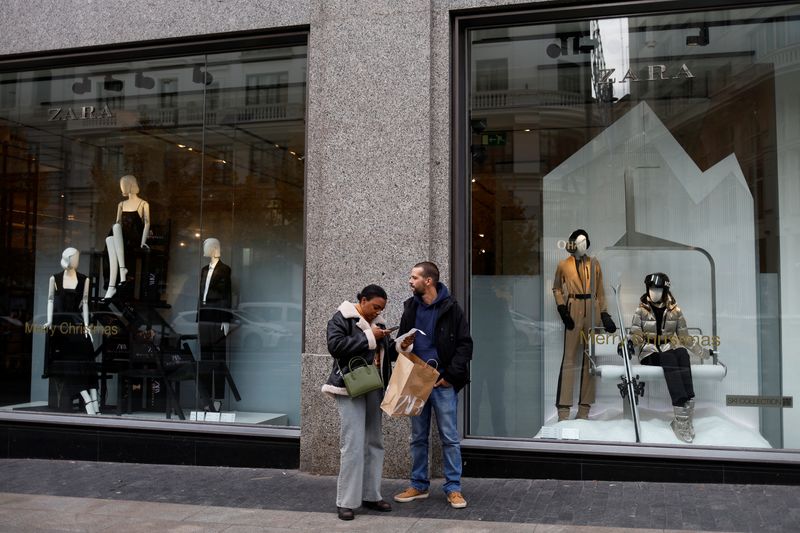Some retailers in Spain see rise in clothing prices over holiday season
2024.11.27 09:28
MADRID (Reuters) – Clothing prices in Spain may rise by as much as 5% over a six month period to February, which includes the Christmas holidays, a survey of retailers by the ARTE business group, whose members include Zara owner Inditex (BME:), H&M (ST:) and Primark, showed.
The survey, the first one conducted by the ARTE group, found 75% of executives who took part expected price rises between zero and up to a 5% increase at a time when inflation in Spain is cooling.
“The evolution of the price of raw materials, the rising cost of transport and the increase in costs associated with the new environmental requirements demanded of companies, will generate slight increases in prices in the sector in the next six months, in a context of moderating inflation,” ARTE’s survey said.
Spain’s EU-harmonised annual inflation stood at 1.8% in the 12 months to October. The EU’s inflation for the same period was 2.3%.
A majority of the 16 executives interviewed in ARTE’s poll conducted in October expect their prices to move between 0% and 5% over the holiday shopping season compared to the previous six-month period between March and August of this year.
The executives forecast that clothing and footwear prices will rise by an average of 2.2% between September and February, which is similar to the 2% increase in the textile retail sector over the same period last year, based on the survey.
But the remaining 25% of executives said that prices could fall, although by no more than 5%.
In the September to February period dominated by holiday shopping, 77% of executives from larger retailers expect apparel sales in Spain to increase by up to 10% compared with the previous six months.

While 8% of executives forecast that clothing sales would rise between 10% and 20% over the period and 15% of them said they feared stagnation or a decline of up to 5%.
The country has projected it will receive a record number of tourists in 2024, contributing to forecasts of faster economic growth than in other European Union nations.








